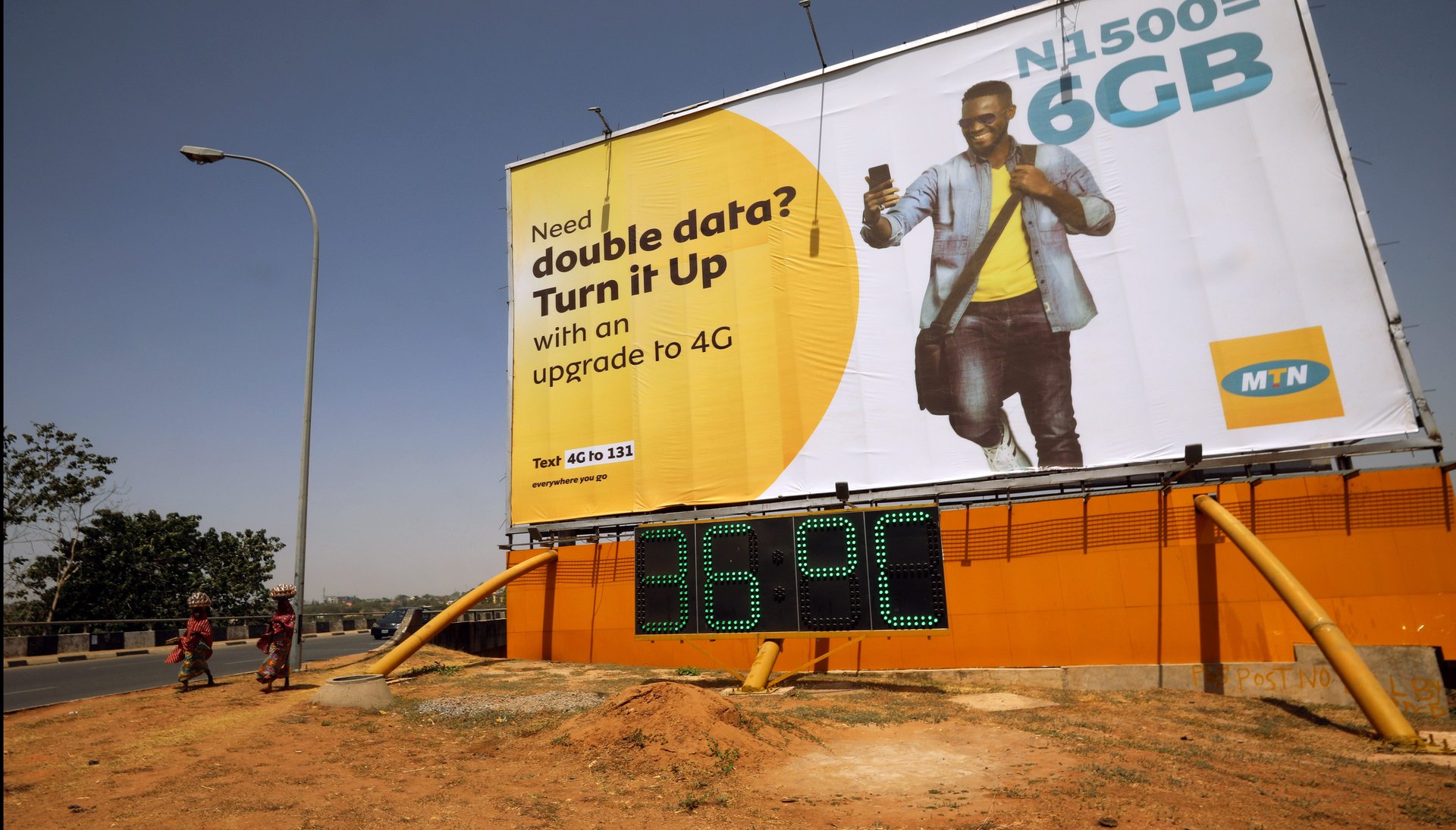Africa’s largest telecom operator mandates vaccines for employees
A call by Africa’s biggest mobile operator MTN, for all employees to get vaccinated or risk dismissal from work beginning next year signals a shift in how the continent’s largest companies are dealing with the pandemic.


A call by Africa’s biggest mobile operator MTN, for all employees to get vaccinated or risk dismissal from work beginning next year signals a shift in how the continent’s largest companies are dealing with the pandemic.
Headquarted in South Africa—which is feeling the effects of the protracted pandemic and the undeserved global backlash after the discovery of the omicron variant—MTN’s move might be an indication of future private sector vaccine mandates to come.
As Africa’s largest mobile network and mobile money operator, MTN has a presence in over 20 countries in Africa and the Middle East and employs 19,300 people.
“The science is clear. Vaccination against Covid-19 reduces rates of serious infections, hospitalization, and death,” Ralph Mupita, the MTN group president and CEO, said in a statement.
He noted that some exceptions would be made for those in countries that don’t have adequate access to vaccines and those who “are exempt from vaccinations either through risk assessment or agreed exclusions.”
Private sector is playing a role in the fight against covid
African telecom and financial companies have been implementing measures to manage the risks from covid-19, through strategies such as mandating employees to work from home. This week, Malawi based and Southern Africa focused First Capital Bank said it will give annual performance bonuses only to vaccinated employees while Standard Bank, Africa’s biggest bank has also introduced mandatory vaccination, saying, “The more people are vaccinated, the lower the risk of future ‘lockdowns’ and travel bans.”
Other companies have been offering free vaccination while several others have contributed money to enable governments across the continent to buy vaccines, complementing donations and state purchases from countries such as Russia, China, and elsewhere. MTN, for example, has given $25 million to a covid-19 vaccination program run by the African Union.
Mixed reactions
However well-intentioned the move by MTN and other private sector giants to get staff vaccinated is, there will be skeptics, those who are hesitant to get vaccinated and those who believe the move is important, but do not appreciate the punitive nature of such measures.
An online opinion poll run by South African broadcaster Newzroom Africa on Twitter had the majority of the more than 1000 respondents (49%) agreeing that “employees who don’t want to get vaccinated should work from home.” Only 20.9% said workers who refuse to be vaccinated “should be fired.”
Way forward
With the recent discovery of the omicron variant in South Africa, the president of South Africa, Cyril Ramaphosa, recently spoke about the need for the country to work on “on a fair and sustainable approach to vaccine mandates.”
He also spoke about how vaccines have “dramatically reduced severe illness, hospitalization, and death in South Africa and across the world.”
Continentwide, “Only about 102 million Africans, or 7.5%, of the continent’s population is fully vaccinated,” according to Dr. Abdou Salam Gueye, emergency director with the World Health Organization’s (WHO) regional Africa office.
Poor vaccine supply seems to play a bigger role in this than vaccine hesitancy.
MTN’s stance could very easily become a model for the telecom industry in Africa given its importance and the high number of employees the sector employs in many countries. But most importantly too, the financial might and influence that such companies have.
Sign up to the Quartz Africa Weekly Brief here for news and analysis on African business, tech, and innovation in your inbox.